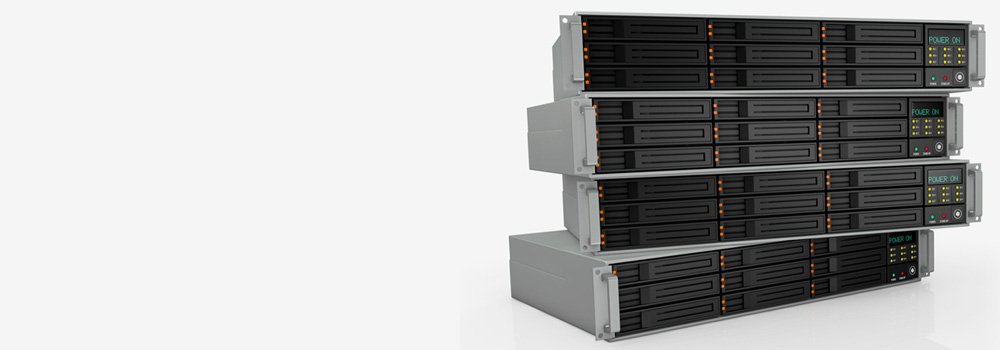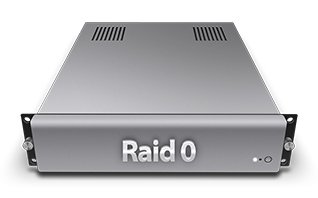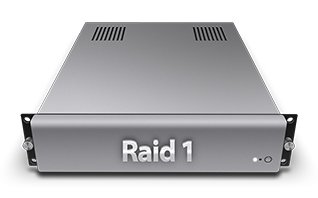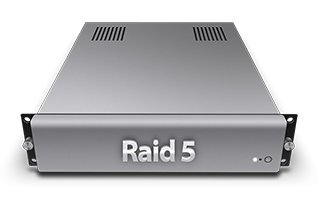RAID 0, 1, 5, and 10 Array for NAS: Professional Data Recovery Services Cambridge:
RAID (Redundant Array of Independent Disks) is widely used in NAS (Network Attached Storage) systems for data storage management. Each RAID level—whether RAID 0, RAID 1, RAID 5, or RAID 10—offers different benefits and challenges. When RAID systems fail, our RAID professional data recovery services with 25 years experience are often necessary to retrieve lost data safely and effectively.
RAID Levels Explained
Each RAID level offers distinct configurations and benefits:
- RAID 0 (Striping): Data is split across multiple drives for increased performance but lacks redundancy, making it vulnerable to data loss if any drive fails.
- RAID 1 (Mirroring): Data is mirrored across drives, providing redundancy. It offers high fault tolerance but no storage increase, as data is duplicated.
- RAID 5 (Striping with Parity): Combines striping with parity, allowing data recovery if a single drive fails. However, failure of more than one drive can lead to data loss.
- RAID 10 (Mirrored Striping): A combination of RAID 0 and RAID 1, RAID 10 offers high performance and redundancy, but requires a minimum of four drives and sacrifices storage efficiency.
Common Causes of RAID Array Failure in NAS Systems
RAID arrays can experience data loss due to various issues:
- Logical Failures: Corruption, accidental deletion, or software errors can make data inaccessible without physical drive failure.
- Physical Drive Failures: Multiple drive failures, especially in RAID 0 or RAID 5, lead to data loss, as there is insufficient redundancy.
- Firmware Errors and Controller Issues: Faulty firmware updates or controller failures can compromise array integrity and data accessibility.
- Malware and Ransomware: Cyber threats like ransomware can corrupt or delete data across multiple RAID drives.
Recognising Signs of RAID Array Failure in NAS Systems
Identifying signs of RAID failure early can prevent complete data loss:
- Performance Degradation: Slower data access or read/write errors indicate potential array issues.
- Degraded Mode or Rebuild Failures: Warnings about degraded mode or issues during array rebuild signal possible hardware failure.
- Inaccessible Files and Error Messages: Error messages or missing files can indicate data corruption or physical damage.
Challenges in Recovering Data from RAID 0, 1, 5, and 10 Arrays
RAID arrays pose unique recovery challenges:
- RAID-Specific Data Fragmentation: Striping and parity mean data is fragmented across drives, complicating reassembly in case of failure.
- Complex Reassembly Requirements: Each RAID configuration requires specific calculations and processes to reconstruct missing data.
- Proprietary NAS Configurations: NAS systems often use proprietary RAID setups, necessitating specialized knowledge and tools.
The Data Recovery Process for RAID NAS Systems
The data recovery process for RAID arrays generally involves:
- Diagnostics and Assessment: Our RAID Technicians analyse each drive to determine failure types (logical or physical).
- Data Imaging and Cloning: Creating a clone of each drive preserves the original data for safe recovery attempts.
- Logical and Parity Reconstruction: Using parity data and mirroring information to reconstruct missing or corrupted data.
- Physical Repair: We have 25 years’ experience of physical repairs for damaged drives.
Benefits of Using our Professional RAID Data Recovery Services for RAID NAS
Our Professional recovery services provide significant advantages:
- Expertise in RAID and NAS Systems: Specialists with RAID experience can effectively handle complex parity and mirroring setups.
- Data Security and Privacy: Labs follow strict protocols to protect client data during the recovery process.
- Access to Advanced Tools: Specialised RAID recovery tools are essential for dealing with RAID arrays safely and efficiently.
Data Recovery Techniques for RAID Arrays (0, 1, 5, 10)
RAID Recovery techniques vary based on the RAID level and type of failure:
- Software-Based Solutions: Logical issues, such as corrupted file systems, can often be resolved with RAID recovery software.
- Physical Repairs: Damaged drives are repaired or components replaced.
- Parity Analysis and Reconstruction: Advanced techniques are used to reconstruct data in RAID 5 and RAID 10 arrays.
Cambridge Data Recovery: RAID Server and NAS Brands and Models We Recover From
At Cambridge Data Recovery, we specialise in recovering data from a wide range of RAID servers and NAS (Network-Attached Storage) systems. Whether you are dealing with RAID failures, degraded arrays, or logical errors, we can recover data from all popular brands and models with our 25 years of experience.
RAID Levels We Support
- RAID 0
- RAID 1
- RAID 5
- RAID 6
- RAID 10
- JBOD (Just a Bunch of Disks)
- Nested RAID configurations (e.g., RAID 50, RAID 60)
Top RAID Server Brands and Models
1. Dell EMC
- Popular Models:
- Dell PowerEdge Servers (R740, R650, T350)
- Dell EqualLogic PS Series
- Dell EMC Unity Series
- Dell VxRail Systems
- Supported RAID Controllers:
- PERC RAID Controllers (PERC H730, H750)
2. HP (Hewlett-Packard)
- Popular Models:
- HP ProLiant Servers (DL360, ML350, BL460c)
- HP StoreOnce Systems
- HPE Nimble Storage
- Supported RAID Controllers:
- Smart Array Controllers (e.g., P400, P812)
3. Lenovo
- Popular Models:
- Lenovo ThinkSystem Servers
- Lenovo ThinkAgile Systems
- Lenovo Storwize V Series
- Supported RAID Controllers:
- ServeRAID (e.g., M5200, M1215)
4. IBM
- Popular Models:
- IBM System x Servers
- IBM Power Systems
- IBM Storwize Series
- IBM DS8000 Storage
- Supported RAID Controllers:
- ServeRAID and MegaRAID controllers.
5. Cisco
- Popular Models:
- Cisco UCS Servers
- Cisco HyperFlex HX Series
- Supported RAID Controllers:
- Cisco Integrated RAID controllers.
6. Fujitsu
- Popular Models:
- Fujitsu PRIMERGY Servers
- Fujitsu Eternus Storage Systems
- Supported RAID Controllers:
- PRAID and MegaRAID controllers.
7. Oracle/Sun Microsystems
- Popular Models:
- Oracle Sun StorageTek Series
- Oracle ZFS Storage Appliance
- Supported RAID Configurations:
- Software RAID and hardware RAID.
8. Supermicro
- Popular Models:
- Supermicro SuperServer Series
- Supermicro BigTwin Servers
- Supported RAID Controllers:
- Adaptec, MegaRAID, and Broadcom RAID controllers.
9. QNAP
- Popular Models:
- QNAP TS Series (TS-253D, TS-453D, TS-873A)
- QNAP TVS Series (TVS-h1288X, TVS-472XT)
- QNAP Enterprise ZFS NAS (ES1640dc)
- Supported Configurations:
- RAID 0, RAID 5, RAID 6, RAID 10, and JBOD.
10. Synology
- Popular Models:
- Synology DiskStation Series (DS920+, DS220j)
- Synology RackStation Series (RS1219+, RS4021xs+)
- Synology FlashStation Series (FS6400, FS2500)
- Supported Configurations:
- SHR (Synology Hybrid RAID), RAID 0, RAID 1, RAID 5, RAID 10.
Top NAS Brands and Models
1. Netgear
- Popular Models:
- Netgear ReadyNAS Series (RN214, RN524X, RN628X)
- Netgear ProSAFE NAS
- Supported RAID Configurations:
- RAID 0, RAID 1, RAID 5, RAID 6, RAID 10.
2. Buffalo
- Popular Models:
- Buffalo TeraStation (TS5410DN, TS7120R)
- Buffalo LinkStation (LS220D, LS510D)
- Supported RAID Configurations:
- RAID 0, RAID 1, RAID 5, RAID 10, JBOD.
3. Drobo
- Popular Models:
- Drobo 5N2
- Drobo B810n
- Supported RAID Configurations:
- BeyondRAID (Drobo’s proprietary RAID).
4. Asustor
- Popular Models:
- Asustor Lockerstor (AS6602T, AS5304T)
- Asustor Nimbustor Series
- Supported RAID Configurations:
- RAID 0, RAID 1, RAID 5, RAID 6, RAID 10.
5. Thecus
- Popular Models:
- Thecus N5550
- Thecus N7770
- Supported RAID Configurations:
- RAID 0, RAID 1, RAID 5, RAID 6, RAID 10.
6. Western Digital (WD)
- Popular Models:
- WD My Cloud EX Series (EX2 Ultra, EX4100)
- WD Red NAS Drives
- Supported RAID Configurations:
- RAID 0, RAID 1, JBOD.
7. Lacie
- Popular Models:
- LaCie 2big Dock RAID
- LaCie 5big Network RAID
- Supported RAID Configurations:
- RAID 0, RAID 1, RAID 5.
8. iXsystems (TrueNAS)
- Popular Models:
- TrueNAS Mini
- TrueNAS Enterprise Series
- Supported RAID Configurations:
- RAID-Z, RAID-Z2, RAID-Z3 (ZFS).
9. ZyXEL
- Popular Models:
- ZyXEL NAS326
- ZyXEL NAS540
- Supported RAID Configurations:
- RAID 0, RAID 1, RAID 5, RAID 10.
10. LenovoEMC (Iomega)
- Popular Models:
- Iomega StorCenter ix2, ix4
- LenovoEMC px4-300d
- Supported RAID Configurations:
- RAID 0, RAID 1, RAID 5.
Types of Failures We Recover From:
- RAID Failures: Degraded arrays, failed rebuilds, or missing RAID configurations.
- Drive Failures: Mechanical, logical, or electronic failures of individual drives in a RAID setup.
- Firmware Issues: Corrupted firmware causing inaccessibility.
- Logical Errors: File system corruption, accidental deletion, or reformatting.
- Physical Damage: Damaged drives due to power surges, overheating, or external impacts.
Why Choose Cambridge Data Recovery?
- Extensive Expertise: Experience with all major RAID and NAS brands.
- State-of-the-Art Tools: Advanced technology for RAID reconstruction and data recovery.
- Secure and Confidential: Data privacy is our top priority.
- No-Recovery, No-Fee Guarantee: Transparent pricing and risk-free diagnostics.
Contact us today to schedule your free diagnostic evaluation and let us recover your valuable data from any of these supported RAID servers or NAS systems.




